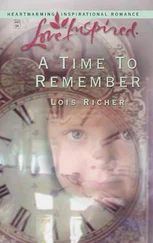Alexander Todd - A Time to Remember
Здесь есть возможность читать онлайн «Alexander Todd - A Time to Remember» весь текст электронной книги совершенно бесплатно (целиком полную версию без сокращений). В некоторых случаях можно слушать аудио, скачать через торрент в формате fb2 и присутствует краткое содержание. Город: Cambridge, Год выпуска: 1983, ISBN: 1983, Издательство: Cambridge University Press, Жанр: Химия, Биографии и Мемуары, на английском языке. Описание произведения, (предисловие) а так же отзывы посетителей доступны на портале библиотеки ЛибКат.
- Название:A Time to Remember
- Автор:
- Издательство:Cambridge University Press
- Жанр:
- Год:1983
- Город:Cambridge
- ISBN:0 521 25593 7
- Рейтинг книги:3 / 5. Голосов: 1
-
Избранное:Добавить в избранное
- Отзывы:
-
Ваша оценка:
- 60
- 1
- 2
- 3
- 4
- 5
A Time to Remember: краткое содержание, описание и аннотация
Предлагаем к чтению аннотацию, описание, краткое содержание или предисловие (зависит от того, что написал сам автор книги «A Time to Remember»). Если вы не нашли необходимую информацию о книге — напишите в комментариях, мы постараемся отыскать её.
A Time to Remember — читать онлайн бесплатно полную книгу (весь текст) целиком
Ниже представлен текст книги, разбитый по страницам. Система сохранения места последней прочитанной страницы, позволяет с удобством читать онлайн бесплатно книгу «A Time to Remember», без необходимости каждый раз заново искать на чём Вы остановились. Поставьте закладку, и сможете в любой момент перейти на страницу, на которой закончили чтение.
Интервал:
Закладка:
My refusal to stand as a candidate for the Vice-Chancellorship - the highest office in the University of Cambridge - perhaps calls for some explanation. My reasons were simple enough. In the University of Cambridge the Vice-Chancellor holds office for only two years, the running of the university being largely in the hands of its permanent officials. In my opinion, two years is too short a period in which to initiate and put into operation any reforms which experience might show to be desirable. In this sense, the Vice-Chancellor seemed to me to be largely a figurehead with little real power, but carrying a great deal of responsibility if things went wrong. Responsibility without power has never appealed to me, and I believe that the Vice-Chancellorship of the university should be held for a longer period (as in Oxford) or be a permanent appointment as in all other universities in the United Kingdom. Already on my first visit as chairman to the offices of the University Press I was horrified; the Press was to all intents and purposes bankrupt, with a soaring overdraft and with sales and receipts dwindling, so that they were unable to cope with rising costs. I believe that only the knowledge that behind the Press stood the university with its great resources had kept the bank from calling a halt. Fortunately, even I could see that the Press could be made to function profitably and that all that was wrong with it was bad management. The Press was managed by the Syndics, a group of academics appointed by the university on a system of rotation; no doubt they were excellent choosers of scholarly books, but they evidently thought that the Press should be run just like a university department; they also seemed wedded to the idea that Press staff should not only be, as far as possible, academics themselves but also be remunerated on university scales without reference to the rates paid in the world of commercial publishing. Fortunately there were some members of the Press who realised the position and were looking for a lead which could only come from the top. I had a few busy months at the start but was lucky enough to get things on the right lines quickly. In these initial moves I received great help and encouragement from R. W. (Dick) David, the University Publisher, who was well aware of the problems and who, quite unselfishly, sought with me to reorganise the Press, even if it detracted from his own position of authority; I shall always be grateful to him for his help. It was evident that the first essential was to appoint a really first-class managing director/chief executive with experience in commercial publishing. Since it was obvious that to get such a person one would need to pay the going rate in competition with commercial publishers, I decided that the best thing to do would be to engage the right man and only tell the Syndics about it after the deed had been done. In this way I was able to appoint a really brilliant executive in Geoffrey Cass, who had previously been associated with Allen and Unwin Ltd. He took office with us on 1 January 1972, and from that day the Press never looked back. Within a year it was back on the rails, and by the time I had to resign (with great regret) my chairmanship at the end of 1975 when I became President of the Royal Society, we were not only making very substantial surpluses but had built up an extremely strong cash and assets position. Although the success was undoubtedly due to Geoffrey Cass, I like to think that I played some part in what was an important rescue operation for the University and for academic publishing.
In March 1973 Sir Geoffrey Gibbs resigned as chairman of the Managing Trustees of the Nuffield Foundation and I was appointed in his place. As the Foundation had been in existence for more than twenty-five years and had an efficient administrative organisation at its London headquarters in Regents Park, the duties of its chairman were not unduly onerous. It seemed to me that we had rather neglected our advisory committees in Australia and New Zealand and that it would be a good thing for the chairman to visit them and discuss programmes and policy on the spot. It happened that I had been invited to deliver the Centenary Oration at the University of Adelaide in 1974, so that it was possible to fit in the Nuffield visits on the same trip. Accordingly, in August 1974, my wife and I travelled to Adelaide and, after the university's centenary celebrations, we visited various centres in Australia on Nuffield matters, and spent a memorable fortnight on Lindeman Island before going on to New Zealand for our second visit to that beautiful country.
We flew from London to Adelaide via Mexico, where we stopped off for an all too short visit. In addition to seeing the marvellous collection of antiquities in the great archaeological museum in Mexico City, we were only able to visit two pre-Columbian temple complexes at Teotihuacan and Tula, but that was enough to make me resolve to return to that beautiful and fascinating country at the first opportunity. Prior to our visit I had been interested in the history of pre-Columbian America, and I knew a fair amount about the Toltec and Aztec civilisations; but I was quite unprepared for the breathtaking size and beauty of the Temples of the Sun and Moon and the huge ceremonial avenue of the Teotihuacan complex. Teotihuacan will always rank in my mind with the great temple at Karnak in Egypt, which is about equally majestic and awe-inspiring.
Adelaide University celebrated its centenary in August 1974 during a spell of warm sunny weather which ensured that all the ceremonial and pageantry went off without a hitch. We met many old friends there, including, of course, the Vice-Chancellor, Geoffrey Badger, and his wife, and we were particularly pleased to meet again Sir Mark Oliphant who, aided by his wife, was doing an excellent job as Governor of South Australia and endearing himself to the ordinary people of the state by his friendliness and informality. I always find Adelaide with its wide streets and balconied houses a most attractive city. It has about it a rather quiet, genteel, air which is also noticeable in the Adelaide Club, of which I had the honour to be a member during my stay. The club preserves much of the old-fashioned courtesy and formality now fast disappearing from many of the London clubs on which the Australian clubs were clearly modelled. I have been a temporary member of several others - the Weld Club in Perth, the Union Club in Sydney and the Melbourne Club - and have found them also to be, if anything, more English than their London counterparts.
Lindeman Island, where we went with our friends Lloyd and Marion Rees after the Adelaide ceremonies, was, as on our earlier visits, a really magnificent place for a relaxed holiday in the sun. The beautiful beaches, the informality of the single hotel, and the eerie stillness of the bush in the centre of the island, broken only by the occasional screech of a currawong -all these were much as before. But there was, I thought, an ominous portent of things to come in the admittedly rough and ready nine-hole golf course, which had been carved out of the bush near the island's only landing strip. I fear that this may be the prelude to the kind of so-called development which has already converted a number of other islands between the Queensland coast and the Great Barrier Reef into raucous holiday resorts. I can only hope that I am wrong!
On our New Zealand visit we made an extensive tour of the South Island with Sir Malcolm Burns, chairman of the Nuffield New Zealand Committee, and his wife as our hosts and companions throughout. The weather was cold and not infrequently wet as we went around - Mount Cook, Queenstown, Te Anu, Arrowtown, Manipouri and Milford Sound - but it was all most enjoyable. I found the rain forest in the far south-west quite fascinating; in a land where the annual rainfall averages well over 300 inches, the forests are dominated by lichens of every colour. New Zealand is a country of great scenic beauty; it is a pity that its towns and cities are not equally inspiring.
Читать дальшеИнтервал:
Закладка:
Похожие книги на «A Time to Remember»
Представляем Вашему вниманию похожие книги на «A Time to Remember» списком для выбора. Мы отобрали схожую по названию и смыслу литературу в надежде предоставить читателям больше вариантов отыскать новые, интересные, ещё непрочитанные произведения.
Обсуждение, отзывы о книге «A Time to Remember» и просто собственные мнения читателей. Оставьте ваши комментарии, напишите, что Вы думаете о произведении, его смысле или главных героях. Укажите что конкретно понравилось, а что нет, и почему Вы так считаете.










